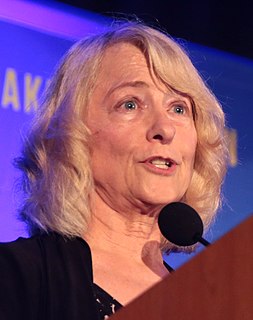A Quote by Temple Grandin
I'm a child of the 50s. I was expected to have table manners. There needs to be some expectations for behavior. I'm seeing some children today, they don't push them enough.
Related Quotes
All children in the '50s were taught manners, they were taught to say please and thank you, they were taught not to be rude. And I'm seeing some problems today where somebody's losing a job because they made fun of a fat lady that couldn't fit in the elevator. I mean that was the sort of thing that, when I was eight years old, my mother made it very clear to me that that was not okay to say that kind of stuff.
Working- and Middle-class families sat down at the dinner table every night - the shared meal was the touchstone of good manners. Indeed, that dinner table was the one time when we were all together, every day: parents, grandparents, children, siblings. Rudeness between siblings, or a failure to observe the etiquette of passing dishes to one another, accompanied by "please" and "thank you," was the training ground of behavior, the place where manners began.
She felt detached from her family, and thought it strange how they had lavished so much attention on her, as a child, and then at some appointed, prearranged time they seemed to stop the flow of affection and being the expectations - as if, for a brief phrase, you were expected to absorb love (and get enough), and then, for a much longer and more serious phase, you were expected to fulfill certain obligations.
If in the earlier part of the century, middle-class children suffered from overattentive mothers, from being "mother's only accomplishment," today's children may suffer from an underestimation of their needs. Our idea of what a child needs in each case reflects what parents need. The child's needs are thus a cultural football in an economic and marital game.
Nine requisites for contented living: Health enough to make work a pleasure. Wealth enough to support your needs. Strength to battle with difficulties and overcome them. Grace enough to confess your sins and forsake them. Patience enough to toil until some good is accomplished. Charity enough to see some good in your neighbor. Love enough to move you to be useful and helpful to others. Faith enough to make real the things of God. Hope enough to remove all anxious fears concerning the future.
Some like them hot,some like them cold. Some like them when they're not to darn old Some like them fat,some like them lean. Some like them only at sweet sixteen. Some like them dark,some like them light. Some like them in the park,late at night. Some like them fickle,some like them true, But the time I like them is when they're like you
EDUCATION, n. The bringing up, as of a child; instruction; formation of manners. Education comprehends all that series of instruction and discipline which is intended to enlighten the understanding, correct the temper, and form the manners and habits of youth, and fit them for usefulness in their future stations. To give children a good education in manners, arts and science, is important; to give them a religious education is indispensable; and an immense responsibility rests on parents and guardians who neglect these duties.
School success is not predicted by a child's fund of facts or a precocious ability to read as much as by emotional and social measures; being self-assured and interested: knowing what kind of behavior is expected and how to rein in the impulse to misbehave; being able to wait, to follow directions, and to turn to teachers for help; and expressing needs while getting along with other children.
Children who willingly participate in sexual acts have the right to make that decision as well, even if it's distasteful to us personally. Some children will make poor choices just as some adults do in smoking and drinking to excess; this is part of life. When we outlaw child pornography, the prices paid for child performers rise, increasing the incentives for parents to use children against their will.




































